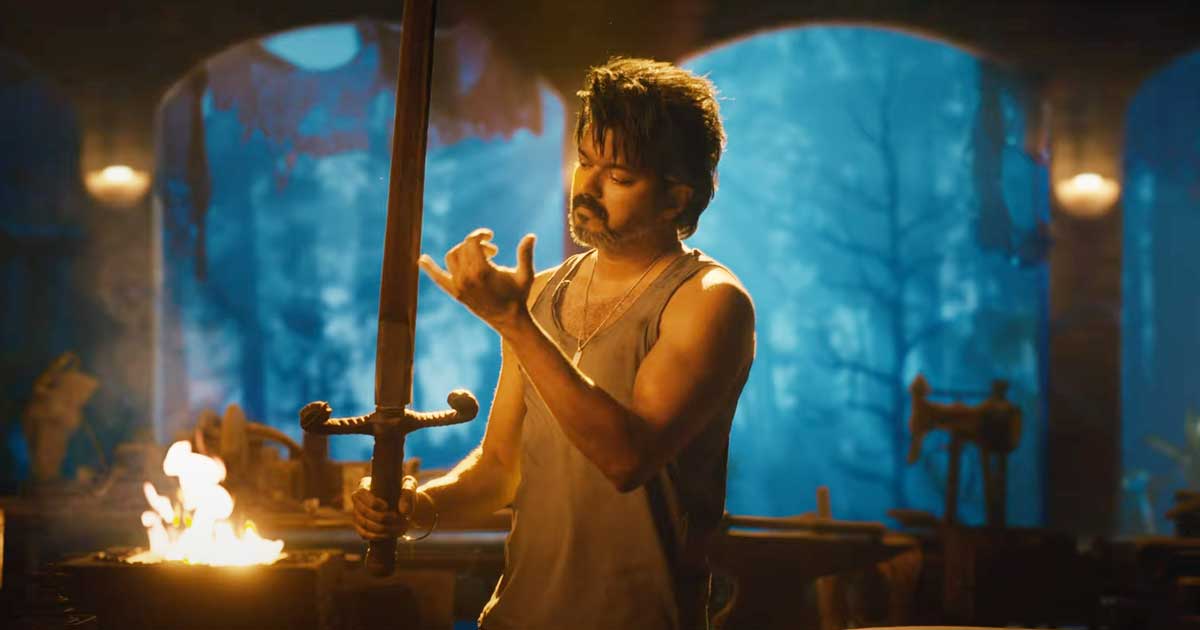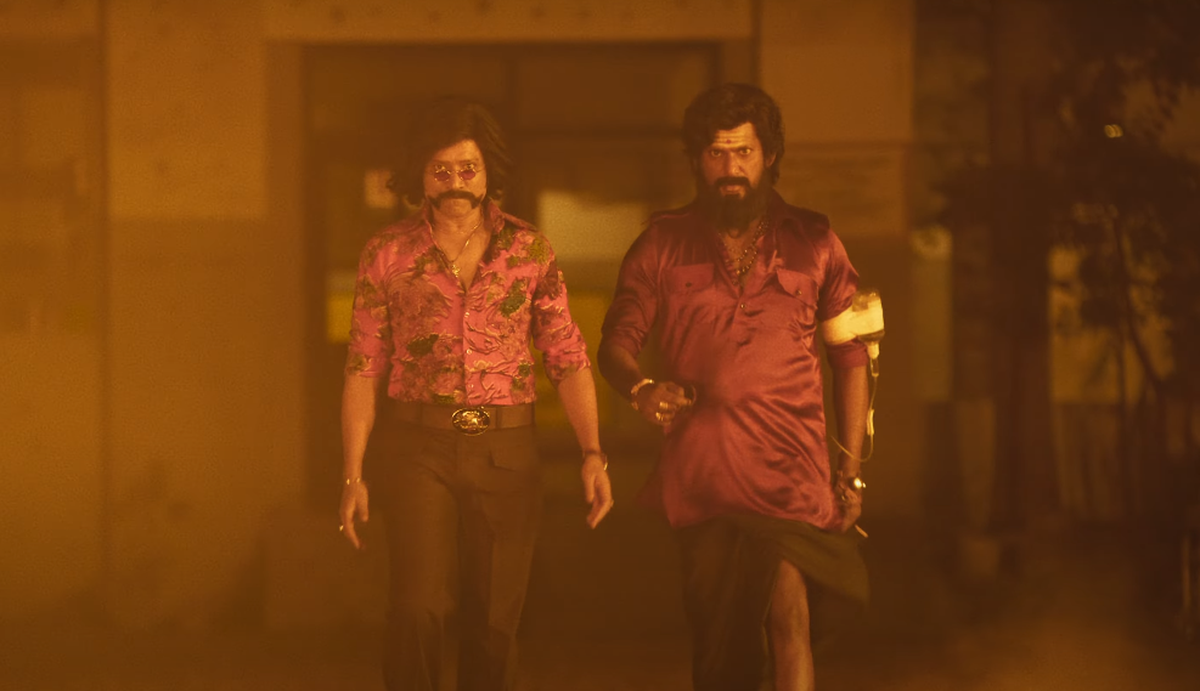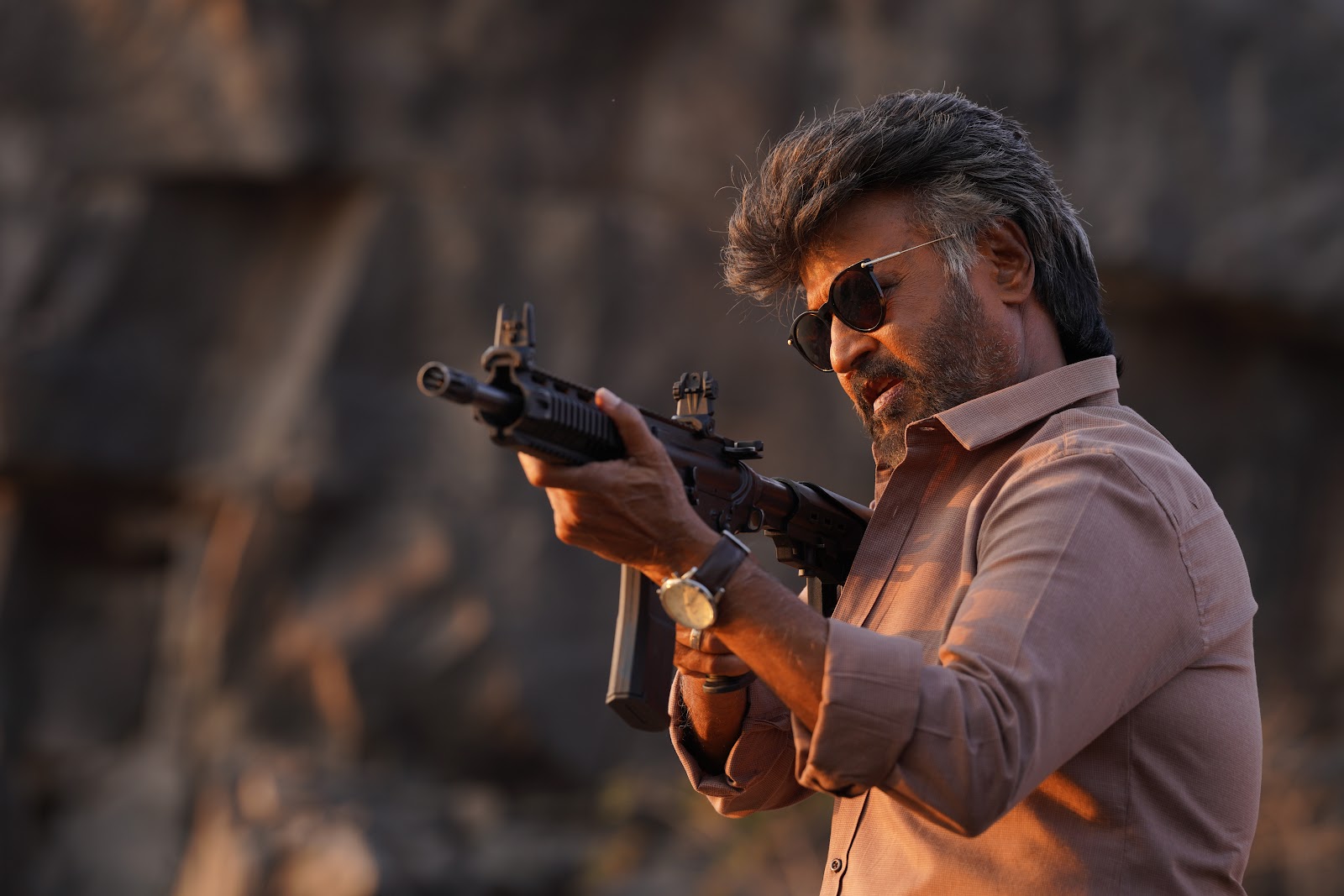Tamil Movie Review: Captain Miller burns down the British Raj with invigorating genre movie pastiche

A down-and-dirty genre picture with a hearty helping of historical resonance, Captain Miller reminds us what “hard-boiled” really means in the context of action filmmaking. For those who thought last year’s Sisu was just a little too tame and cutesy in its creative interpretation of 20th Century history: have I got a movie for you. Unrelenting to the point of madness, this is as pulpy and savage as I’ve ever seen a cinematic glorification of Indian resistance against the British Raj. It makes RRR look like a superhero dress-up party.
After a brief prologue, the film opens like an Indian take on the Western genre, complete with Wanted posters for its titular outlaw, Eesa AKA Captain Miller (played by Dhanush). Miller and his gang actively take on the British battalions responsible for ongoing atrocities in the local village and surrounding areas. In the beginning, with Miller largely shrouded in mystery, this feels like simple vigilante justice operating as a form of political resistance.
But as in most strong genre movies, there’s more lore to be explored than first meets the eye. Co-writer/director Arun Matheswaran delves into the extended backstory of Eesa with real finesse; the film progressively builds upon its propulsive energy, without the amount of time spent in “flashback” mode coming across as a chore. We learn that Eesa was originally assigned the name of “Miller” when he signed up for the British army, a short-lived enlistment that ended abruptly when he and his fellow Indian soldiers were painstakingly forced to massacre their countrymen protesting the British rule. From that day on, “Miller” charted a new course.
Tamil Movie Review: Leo is an exhilarating action-crime-mystery, even in spite of a second half that doesn’t fully deliver

If you had asked me one year ago to compile a list of 100 American movies made in the last twenty years that would make good candidates to be reimagined by Tamil filmmakers, I doubt I ever would have come up with David Cronenberg’s A History of Violence. And yet, as envisioned by Lokesh Kanagaraj – in the third chapter of his larger “LCU” or “Lokesh Cinematic Universe,” no less – the inspiration feels entirely logical and natural. In fact, if there’s a quibble to be had with Leo, it’s that it feels a little too safe and familiar for a Kollywood smash-hit, not that its imagination is too large. For a movie that actively announces itself as a “tribute” to A History of Violence in its opening titles, Leo never really tries to mimic Cronenberg’s penchant for psychological boundary-pushing.
While the adaptation choice may strike some as peculiar given the film’s more modest ambitions, Leo does successfully take the basic setup of A History of Violence and mold it to fit a traditional Kollywood crime saga fronted by a protagonist with a suspicious past. Like Viggo Mortensen’s Tom Stall before him, Vijay’s Parthiban here becomes an accidental local celebrity in his small town after he successfully defends himself, his daughter, and his staff by gunning down a group of homicidal maniacs robbing his café after-hours. The attention proves entirely unwanted, however, when he becomes a target as a result. And the men who want him dead are not just those linked to the ones he killed. There is another, much larger, much scarier group who spot Parthiban in the news and feel confident they’ve finally found an ex-associate they’ve long been searching for named Leo Das. Given Parthiban’s stunning marksmanship during the self-defense incident, we have a feeling they might be right, despite his vehement denials.
Tamil Movie Review: Mark Antony brings back linear time travel with mixed results

After nearly two years of being inundated with multiverse movies at the multiplex, it’s refreshing to see a straightforward time travel film like Mark Antony, which takes cinematic “alternate realities” back-to-basics in approaching time as a linear absolute. It’s also a reminder that multiverse stories have it comparatively easy; when filmmakers enjoy an endless number of parallel realities at their disposal, they can seemingly offer any solution they want to a narrative dead-end. More traditional time travel narratives like Mark Antony require the writers to show more of their math when it comes to the Butterfly Effect, which is typically a more rigorous undertaking.
When onscreen time travel logic is done right, the juice is worth the squeeze: as a viewer, there’s something very satisfying about validating that the math checks out. But the constant arithmetic can also get a little tedious if it’s not being consistently used to take the story in fun new directions, which gets to be the case here after an energetic start.
Mark Antony definitely has enough stylistic swagger, scenery-chewing performances, and goofy aplomb to sustain for a good while, at least until intermission. It moves at a mile-a-minute pace as it initially sets up all of the players and rules of its time travel narrative, allowing the audience just enough breathing room to digest the particulars without getting lost. But make no mistake: meticulous plotting aside, this is an absurdist high-wire act, not a particularly serious piece of sci-fi filmmaking.
Tamil Movie Review: Jailer succeeds on star power, despite underwhelming twists

Before Jailer, I had never seen a single movie starring Rajinikanth before, but one need not have even heard of any of the Tamil movie industry legend’s 150+ previous credits to know that he is a superstar. The film makes it aggressively clear just what a force this man is, nearing self-parody in the sheer number of slow-motion shots it features of the hero arriving in each scene. It also seeks to afford his thick-rimmed glasses the same iconic motif status as Indiana Jones’ bullwhip or Dirty Harry’s .44 magnum; apparently, Rajinikanth only needs corrective lenses to be able to kick ass. Through such explicit stylistic pronouncements, it feels like writer/director Nelson is introducing Rajinikanth to the entire world at the ripe age of 72, with Kollywood films like Jailer receiving broader distribution than ever before, just as much as he is engaging in fan service for the actor’s loyal following. In other words, he’s welcomely catching the rest of us up.
With an even slightly lesser star, this strategy easily could have backfired, coming across as cheesy and over-the-top. But much like Liam Neeson in the first Taken and Keanu Reeves in John Wick, Rajinikanth has the sheer level of magnetism required to sell the filmmaker’s balls-to-the-walls vision with a surprising level of internal credibility. We don’t bat an eyelash as this 72-year-old takes down hordes of men half his age – somehow, it feels positively logical. And what a sight it is to watch him do it; in much the same way that Top Gun Maverick did in the U.S. last year, Jailer reminds audiences what a true movie star looks like. Even as the film’s plot descends into complete nonsense – and boy does it ever – you’re completely transfixed by Rajinikanth as Muthuvel Pandian, the police pensioner who comes out of retirement to avenge his dead son.

